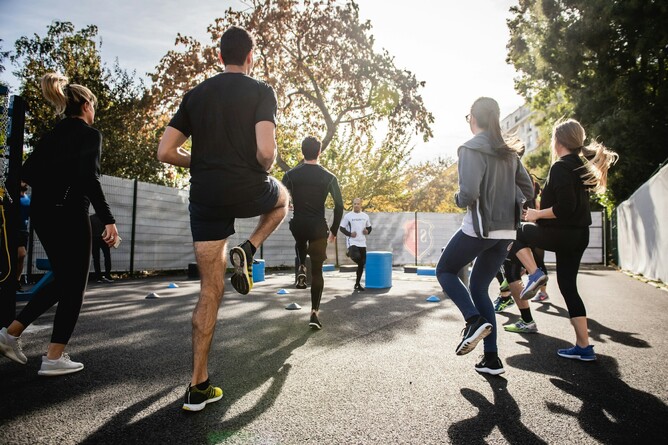Boosting Workplace Culture and Morale with Group Fitness
In today's fast-paced corporate environment, it's more important than ever for businesses to prioritise the well-being and morale of their teams. At Holistic Strength, leading exercise physiologists based in Perth, we understand the transformative power of physical activity not just on individual health, but on fostering a positive workplace culture as well. Incorporating regular group fitness classes into the work routine can be a game-changer for businesses looking to enhance productivity, improve employee satisfaction, and build a supportive community.
The Power of Physical Activity in the Workplace
Research has consistently shown that regular physical activity can significantly improve mental health, decrease stress levels, and enhance cognitive function. For employees, this means better focus, increased creativity, and lower instances of burnout. For employers, the benefits are equally compelling: a healthier, happier workforce is inherently more productive and engaged.
Group fitness classes, in particular, offer a unique opportunity to combine the physical benefits of exercise with the social advantages of team-building activities. By participating in these classes together, employees can strengthen interpersonal relationships, improve communication, and foster a sense of camaraderie that translates into a more collaborative and supportive workplace environment.
How Group Fitness Classes Enhance Workplace Culture
Community Building: Regular group fitness sessions encourage a sense of community among participants. This shared experience can break down hierarchical barriers and promote a more inclusive atmosphere, making everyone feel valued and part of a team.
Stress Reduction: Exercise is a powerful stress-reliever, and participating in group classes can amplify these benefits. The supportive environment provides a safe space for employees to unwind, recharge, and return to work with renewed focus and energy.
Improved Morale: The sense of achievement and the endorphin boost from exercise can significantly enhance mood and morale. As employees feel better physically and mentally, this positive attitude permeates the workplace, leading to a more upbeat and motivated team.
Encouraging Healthy Habits: By facilitating access to regular exercise, companies can encourage their employees to adopt healthier lifestyles. This investment in employee well-being can reduce absenteeism due to illness and create a more vibrant, energetic workplace culture.
Implementing Group Fitness Classes at Your Workplace
At Holistic Strength, we specialise in creating customised fitness programs that cater to the unique needs of each business and its employees. Here are some tips for successfully integrating group fitness classes into your workplace:
Consult with Professionals: Work with exercise physiology experts to design a program that is safe, effective, and enjoyable for all fitness levels.
Offer Variety: Include a range of classes that cater to different interests and abilities, from yoga and pilates to circuit training and boot camps.
Make it Accessible: Schedule sessions at convenient times and ensure they are easily accessible to all employees. Consider offering virtual options for remote workers. Encourage Participation: Foster a positive culture around fitness by encouraging participation through incentives, challenges, and social support.
Investing in the health and well-being of employees through regular group fitness classes can significantly enhance workplace culture and morale. At Holistic Strength, we're committed to helping Perth businesses thrive by supporting their most valuable asset: their people. By fostering a workplace environment that values health, community, and well-being, businesses can not only improve productivity and employee satisfaction but also attract and retain top talent.
As we move forward, let's reimagine the potential of our workplaces not just as spaces for work, but as communities that support the holistic well-being of every individual. Together, we can build stronger, healthier, and more resilient teams and improve corporate health.
